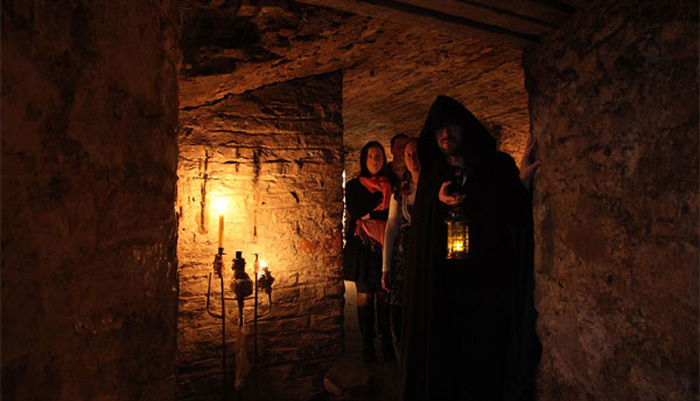The allure of the supernatural has always captivated our imaginations, and what better way to indulge in this fascination than by embarking on a thrilling haunted tourism adventure? From ghost tours to paranormal investigations, these experiences not only offer spine-tingling excitement but also have a significant economic impact on local communities. In this article, we will explore how haunted tourism boosts local economies, creating jobs, attracting visitors, and fostering community development.
1. Increased Tourism Revenue:
One of the most obvious economic benefits of haunted tourism is the influx of visitors it brings to a community. Whether it’s an abandoned asylum or a notorious haunted house, these attractions draw curious tourists from far and wide. As a result, local businesses such as hotels, restaurants, cafes, and souvenir shops experience increased patronage. This surge in tourist spending directly contributes to the growth of the local economy.
2. Job Creation:
Haunted tourism creates employment opportunities for residents within the community. As more tourists flock to these destinations seeking thrills and chills, there is a rising demand for tour guides who can share captivating stories about haunted locations. Additionally, support staff like ticket sellers or maintenance workers are required to ensure smooth operations at these sites. The emergence of new job roles not only reduces unemployment rates but also generates income for locals.
3. Preservation Efforts:
Many historical buildings with haunting tales attached to them might otherwise fall into disrepair if not for their popularity among paranormal enthusiasts. Haunted tourism provides an incentive for property owners to preserve these structures as they become valuable assets that attract visitors year after year.
These preservation efforts help maintain historical integrity while contributing positively towards urban revitalization initiatives within communities.
4. Diversification of Local Economy:
Haunted tourism often leads cities or towns previously reliant on traditional industries (such as manufacturing or agriculture) to diversify their economies by embracing alternative forms of revenue generation – namely through unique visitor experiences centered around paranormal activities.
By investing in haunted attractions, these communities can tap into a previously untapped market and create a niche for themselves. This diversification helps build resilience against economic downturns and boosts overall financial stability within the region.
5. Community Engagement:
Haunted tourism has the power to foster community engagement by bringing residents together to participate in local events and initiatives. Festivals, ghost walks, or haunted house contests encourage collaboration among businesses, organizations, and residents, reinforcing a sense of community pride.
Furthermore, these activities showcase the rich history and culture of the area while also attracting tourists who may return for future visits due to their positive experiences.
6. Secondary Economic Effects:
Beyond direct spending on tickets or merchandise at haunted attractions, there are secondary economic effects that benefit local communities. Visitors often extend their stays by booking longer hotel accommodations or dining at nearby restaurants.
Moreover, they might engage in other tourist activities offered in the region such as exploring historical landmarks or enjoying outdoor recreational opportunities. These additional expenditures broaden the scope of economic impact beyond just the haunted tourism sector itself.
7. Cultural Heritage Preservation:
Haunted tourism not only generates revenue but also plays a crucial role in preserving cultural heritage. Many haunted locations carry historic significance tied to local folklore or key events from the past.
By promoting these places through guided tours and educational programs focused on their historical context, communities can ensure that this cultural heritage is passed down through generations while simultaneously benefiting from increased visitor interest.
In conclusion, haunted tourism has far-reaching economic benefits for local communities. Not only does it attract visitors who spend money on various goods and services within the area but it also creates jobs directly related to running these experiences.
Additionally, it fosters community development by encouraging collaboration among businesses and residents alike while contributing to urban revitalization efforts.
As long as there remains an appetite for supernatural thrills and chills – which seems unlikely to fade anytime soon – local economies will continue reaping rewards from embracing haunted tourism as a valuable asset.

Leave a comment